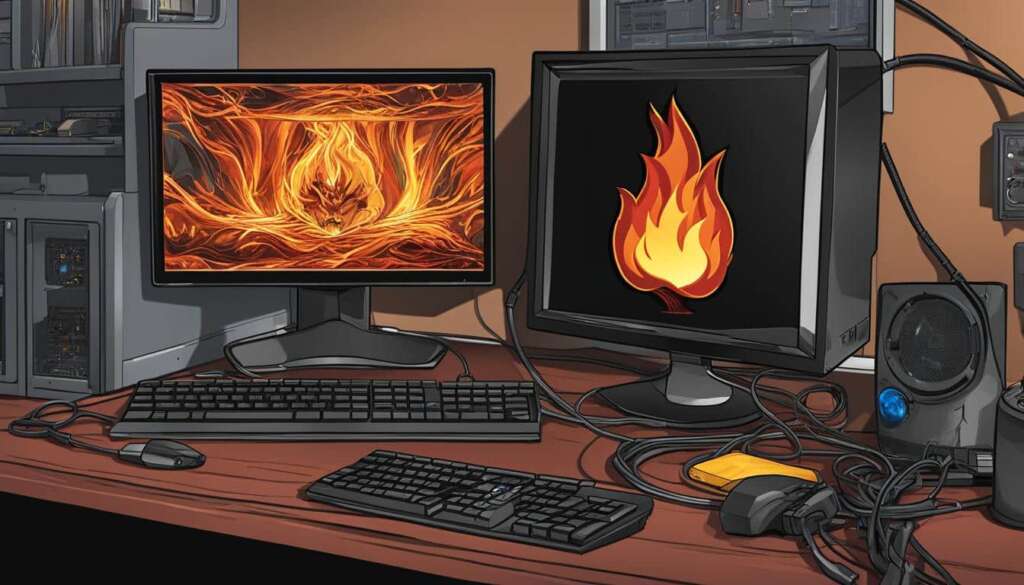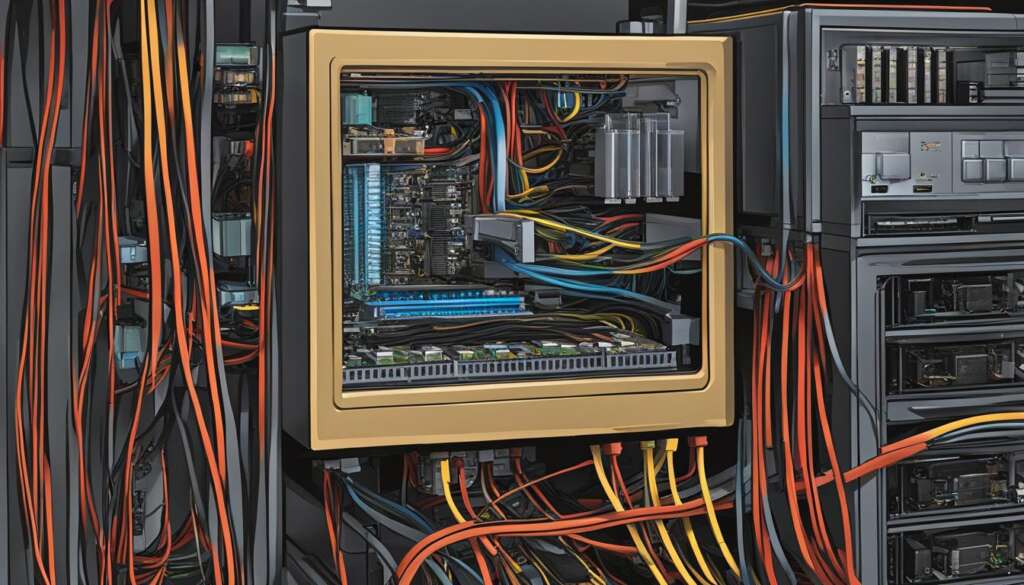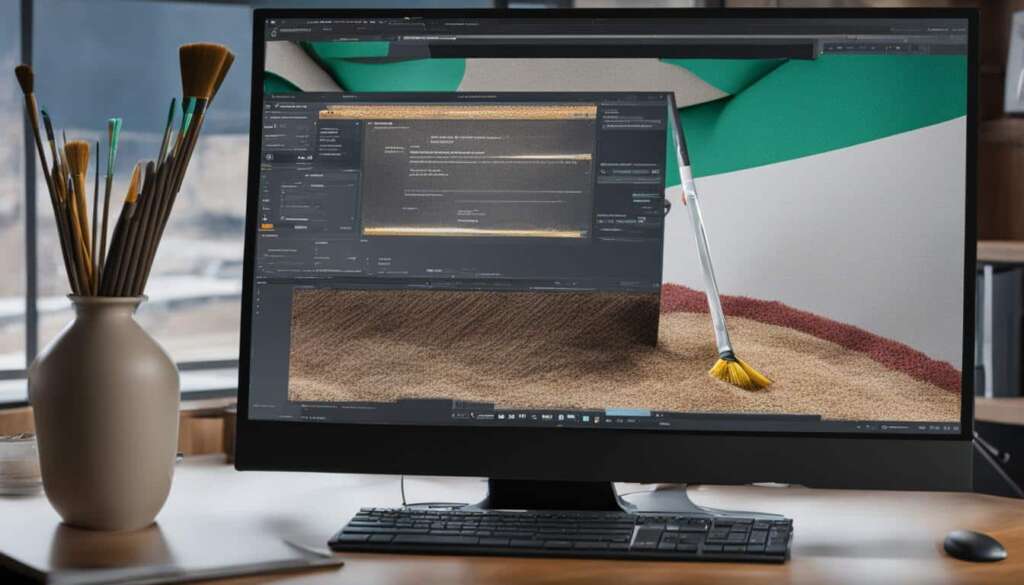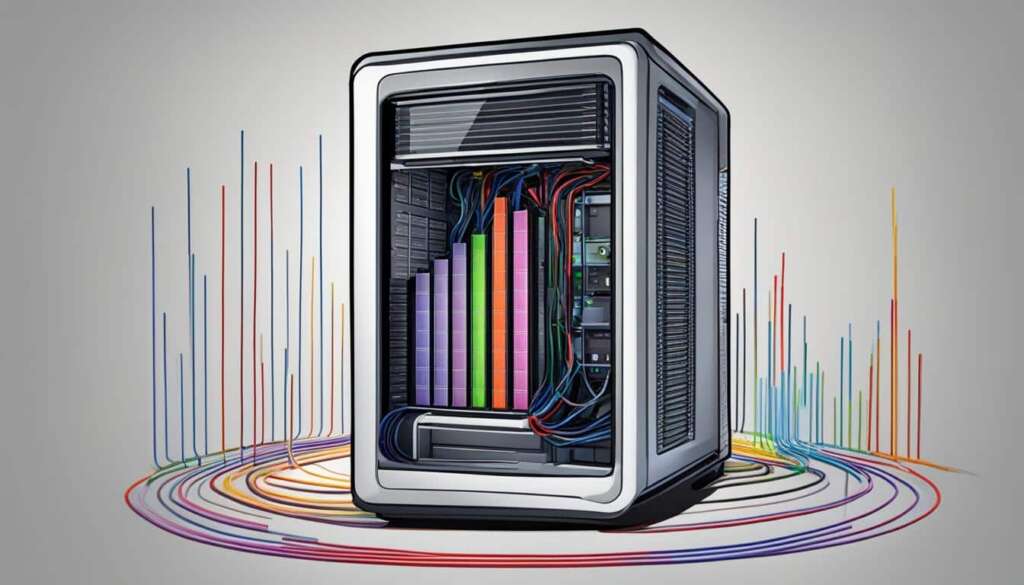Table of Contents
Gaming computers are known for their high power consumption compared to other types of computers. The average mid-range gaming PC uses between 300 and 500 watts of power. However, the wattage can vary depending on the size and type of gaming PC. Desktop gaming PCs tend to consume more power than gaming laptops.
The power consumption of a gaming PC is influenced by factors such as the installed hardware, the intensity of gameplay, and the use of additional peripherals. It’s important to consider the power requirements of a gaming PC when choosing components and to be aware of the potential impact on energy consumption and electricity bills.
Understanding how many watts a gaming PC uses can help gamers make informed decisions about their power consumption and energy usage. By selecting energy-efficient components and optimizing power settings, gamers can minimize their environmental footprint and save money on their electricity bills.
Factors Affecting Gaming PC Power Consumption
When it comes to power consumption, gaming PCs are known for their higher energy needs compared to other types of computers. Several factors influence the amount of power a gaming PC consumes, ranging from hardware specifications to software demands and usage patterns.
Outdated Hardware
Outdated components, such as old graphics cards and processors, often require more power to operate efficiently. As technology advances, newer hardware becomes more power-efficient, reducing energy consumption while delivering better performance. Upgrading to modern, energy-efficient hardware can help optimize power usage in a gaming PC.
Software Demands
The power consumption of a gaming PC can also be influenced by the type of software being used. Graphically demanding games and applications often require more energy to render complex visuals and provide smooth gameplay. When engaging in intensive gaming sessions, the power draw of the PC can increase significantly.
Dust Build-up and Heating
Over time, dust can accumulate inside a gaming PC, especially in the fans and heat sinks. This dust build-up restricts airflow and leads to overheating, which causes the system to work harder and consume more power. Regular cleaning of the PC’s internals is essential to ensure optimal airflow and prevent excessive power consumption.
Usage Patterns
The duration of gaming sessions directly affects power consumption. The longer a gaming PC is in use, the more energy it will consume. Gamers who spend extended periods playing games or engaging in resource-intensive tasks should be mindful of their power consumption. Taking breaks and optimizing power settings can help reduce energy use without compromising the gaming experience.
By understanding and addressing these factors, gamers can effectively optimize power usage and reduce energy consumption without sacrificing performance.
| Factors | Impact on Power Consumption |
|---|---|
| Outdated Hardware | Increased power requirements |
| Software Demands | Higher power draw for graphically demanding games and applications |
| Dust Build-up and Heating | Overheating leads to increased power consumption |
| Usage Patterns | Longer gaming sessions result in higher energy use |
The Cost of Gaming PC Power Consumption
The power consumption of a gaming PC can have a significant impact on electricity bills. On average, a gaming PC with a wattage ranging from 300 to 500 watts can contribute an additional £10 to £20 to your monthly energy bill, depending on usage. The actual cost will vary depending on the electricity rate in your area and the number of hours the gaming PC is in use.
When budgeting for a gaming PC, it’s essential to consider the potential increase in electricity costs. To minimize the impact on your wallet, you can explore ways to reduce energy usage. One approach is to choose energy-efficient components, such as power-efficient processors and graphics cards.
Another effective strategy is to optimize the power settings of your gaming PC. By adjusting settings such as screen brightness, sleep mode duration, and power-saving modes, you can further reduce power consumption and save money on your electricity bills.
By being mindful of the power consumption of your gaming PC, you not only reduce your environmental footprint but also have the opportunity to make long-term cost savings. With careful planning and energy-efficient choices, you can enjoy your gaming experience without breaking the bank or negatively impacting the environment.
FAQ
How many watts does a gaming PC use?
The average mid-range gaming PC uses between 300 and 500 watts of power. However, this can vary depending on the size and type of gaming PC. Desktop gaming PCs typically consume more power than gaming laptops.
What factors affect gaming PC power consumption?
Several factors can contribute to the power consumption of a gaming PC. This includes the installed hardware, the intensity of gameplay, the use of additional peripherals, the age of the devices, the type of software being used, the presence of dust build-up, and the amount of time spent gaming.
How does gaming PC power consumption impact electricity bills?
On average, a gaming PC with a wattage of 300 to 500 watts can add up to around $10 to $20 to the monthly energy bill, depending on usage. The cost will vary based on the electricity rate in your area and the number of hours the PC is in use. It’s important to consider the potential increase in electricity costs when budgeting for a gaming PC and to explore ways to reduce energy usage.







